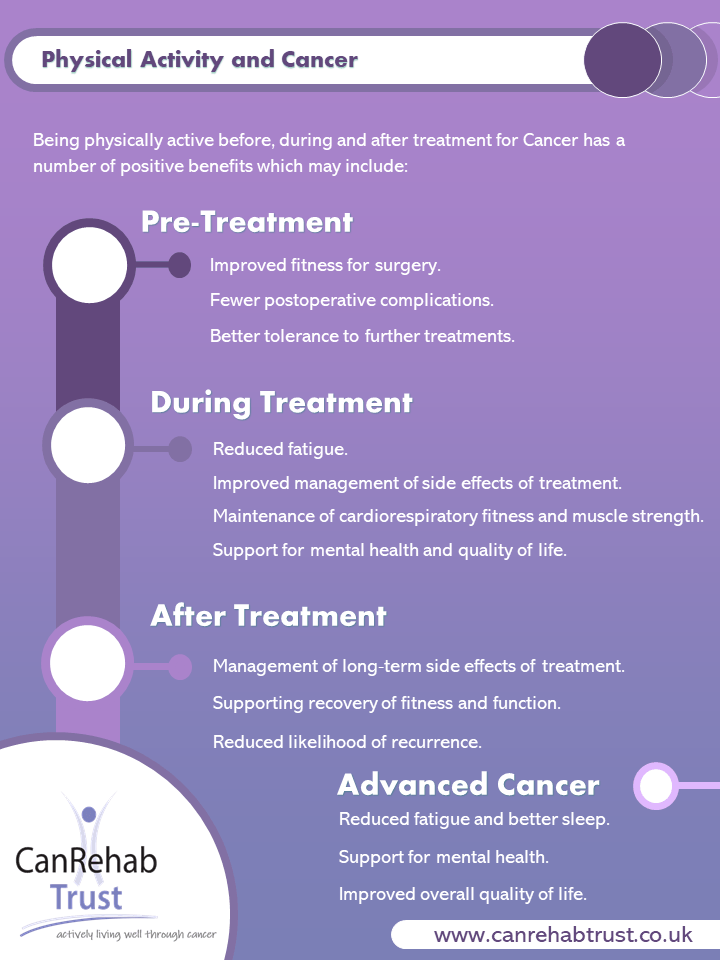Physical Activity is important Post Cancer Diagnosis
Latest research shows that if you are born after 1960, your lifetime risk of being diagnosed with cancer is now 1 in 2. There are over 360,000 new cancer cases in the UK every year - that's nearly 1000 every day (CRUK).
Over the past few years researchers have discovered how being physically active can have a positive impact physically and psychologically on people who have had a cancer diagnosis, and in some countries exercise is now considered as a component of a patients treatment. The following diagram shows how being physically active can benefit people who have been diagnosed with cancer at any stage of their treatment pathway.
Pre treatment
Recently, we have seen more research seeking to understand the importance of physical activity as part of a rehabilitation programme. Undertaking physical activity before treatment is believed to have a number of benefits for patients such as helping tolerate treatments and even better treatment outcomes for people with certain cancers. For example one review of studies showed that patients with lung cancer had fewer post-operative complications and shorter hospital stays having undertaken a aerobic exercise programmes prior to treatment.
During treatment
Going through treatment can be a punishing time for the body and mind. Being physically active can help alleviate some of the side effects of treatment and help improve the physiological and psychological ability to withstand treatment. Examples of how physical activity can help include
- Improved mood
- Better able to manage cancer related fatigue
- Better sleep
- Reduced loss of cardio and respiratory fitness, strength and flexibility
- Reduced risk of lymphodema
Post treatment
Many people live with the effects of cancer and treatment side effects long after treatment has finished. Being active is beneficial to patients enabling them to regain fitness and function and also may reduce or delay recurrence of cancer. The evidence suggests that being active can help to regain and improve physical function, aerobic capacity, strength and flexibility. Other benefits include:
- Reduced fatigue
- Improved body image and body composition
- Improved quality of life
- Reduced the risk of other long-term conditions
- Reduced joint pain in patients taking aromahase inhibitors
- Improved urinary incontinence for patients with prostate cancer
Advanced cancer
Advances in treatment means that people are living longer with advanced cancer. It is important that people are supported to live well for as lons as possible and physical activity can have an important role in supporting an improve quality of life. The evidence suggests that physically active people
living with advanced cancer can benefit from
- increases in cardio and respiratory fitness and strength
- improvements in levels of fatigue
- improvements in bone density in patients that have bone metastates
- improvements in sleep
- improvements in quality of life

